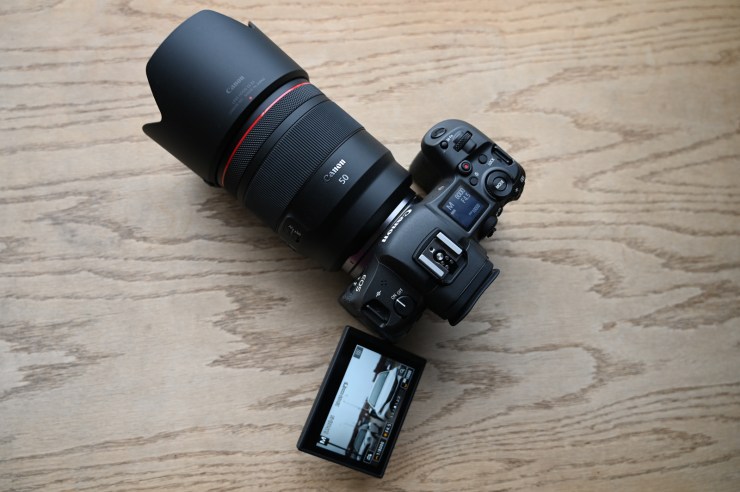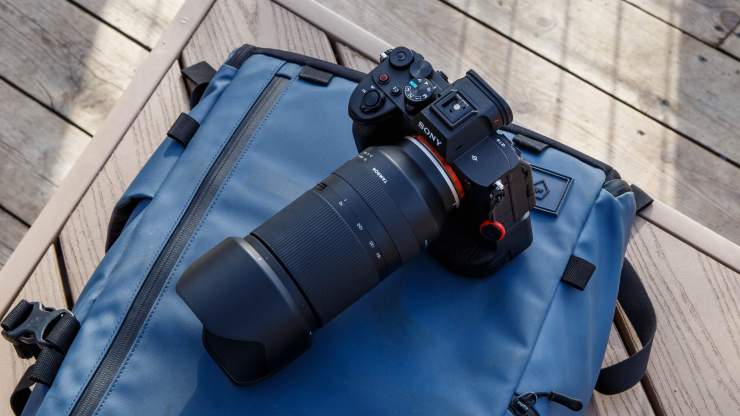Last week — after lots of speculation — Canon finally announced two new R series cameras; the Canon EOS R7 and the EOS R10. These two mirrorless APS-C cameras nicely round out the family of Canon R series cameras; however, there’s still a severe lack of affordable RF mount lenses, especially for professionals.
Canon has made great strides in regards to RF mount lenses; however, many of their premium options are cost-prohibitive. There are a few affordable RF mount lenses like the RF 35mm f/1.8 (our review), the RF 50mm f/1.8 (our review), the RF 24-105mm f4-7.1 and the RF 100-400mm f/5.6-8, but these lenses aren’t exactly pro-grade.
Of course, you could adapt older EF lenses onto Canon’s R series cameras, but why? If you buy into a system, it’s always best to use native glass. This is where third-party lenses from the likes of Sigma and Tamron could help.
Sigma and Tamron lenses — Pro-grade, half the price

Tamron and Sigma were churning out quality, pro-grade lenses for Canon EF and Nikon’s F mount, toward the end of the DSLR’s lifecycle. Lenses from these two companies were so good that many professional photographers felt like they could leave expensive first-party lenses behind.
Of course, many hobbyist and enthusiast photographers also snapped up Sigma’s and Tamron’s APS-C lenses too. The Sigma 18-35mm f/1.8 Art, for example, is still one of my favorite lenses of all time. I hope that someday we will see a mirrorless version for Canon’s (and others’) APS-C cameras.

Thanks to third-party lens manufacturers, you could buy top-quality, weather-sealed lenses with exceptional optics for half the price of Canon and Nikon’s offerings. You wouldn’t sacrifice anything in regards to optical quality, either.
The good news is that the promise of professional-grade lenses from third parties for full-frame and APS-C cameras has carried over to a few platforms in the mirrorless age. Users of Sony, L Mount Alliance and Fujifilm cameras have it pretty good. Canon and Nikon shooters, not so much.
Users of Sony, L mount and Fujifilm cameras are reaping the benefits of fantastic third-party lenses like the Sigma 150-600mm f/5-6.3 (read our review) and Tamron’s brilliant 35-150mm f/2-2.8 (our review is here). But unfortunately, four years into Canon’s R series camera lifecycle and (Nikon’s Z mount cycle), we’re no closer to seeing third-party support from Tamron and Sigma.
With third-party support, Canon R series camera adoption would boom

Many R series camera users are happy to pay premium prices for RF L series lenses. Surely, though, Canon must know that many thousands of photographers — myself included — are holding off buying into the system until third-party support comes along? I’m not sure who’s to blame here. It could be Canon themselves, or Tamron and Sigma are waiting for more R series camera adoption.
It could well be that Canon is refusing to share their autofocus algorithms just like they did with their DSLRs. Most — if not all — Tamron and Sigma lenses for the EF mount were reverse-engineered. Reverse engineering is complex and not cost-efficient, so you can easily understand the third-party hesitancy. Still, some third-party lenses from the likes of Samyang work very well with Canon’s RF mount. So, it’s possible. However, it would be better for everyone if Canon would share the secret sauce behind their AF algorithms with lens manufacturers.

Whatever the case, Canon’s mirrorless cameras — and many who use them — would welcome broader third-party lens support with open arms. It would be nice to buy lenses like Tamron’s 70-180mm f/2.8 and 28-75mm f/2.8 Di II VXD G2. Sigma’s beautiful, fast primes would also be much easier on the wallet and would deliver the results that professionals need.
Of course, there’s still plenty of time for third-party support. We just wish the powers that be would spring into action a little quicker so we can all enjoy what Canon’s R series cameras have to offer. Do you use a Canon R series camera? What lenses do you use? Would you be interested in seeing full-frame and APS-C RF mount Sigma and Tamron lenses on the platform? Let us know in the comment section below.
Tell your story with the second annual Visual Storytelling Conference!
Experience four days of interactive, online training sessions featuring a range of educational content with experienced photographers and content creators. This free event kicks off with a series of technical boot camps to build essential skills, followed by live, online sessions on photography, video, business and social media. Join live from March 10-13, 2022!
